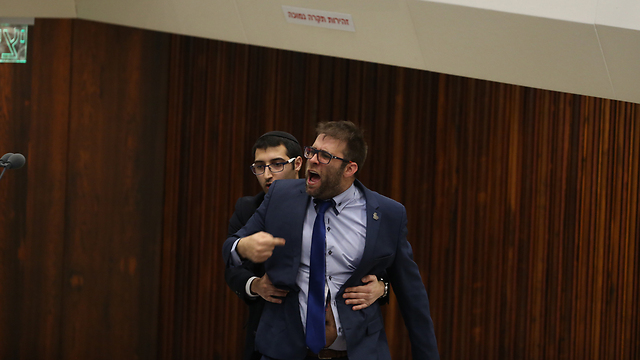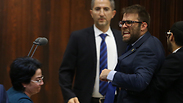
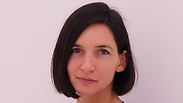
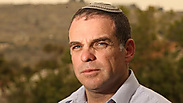
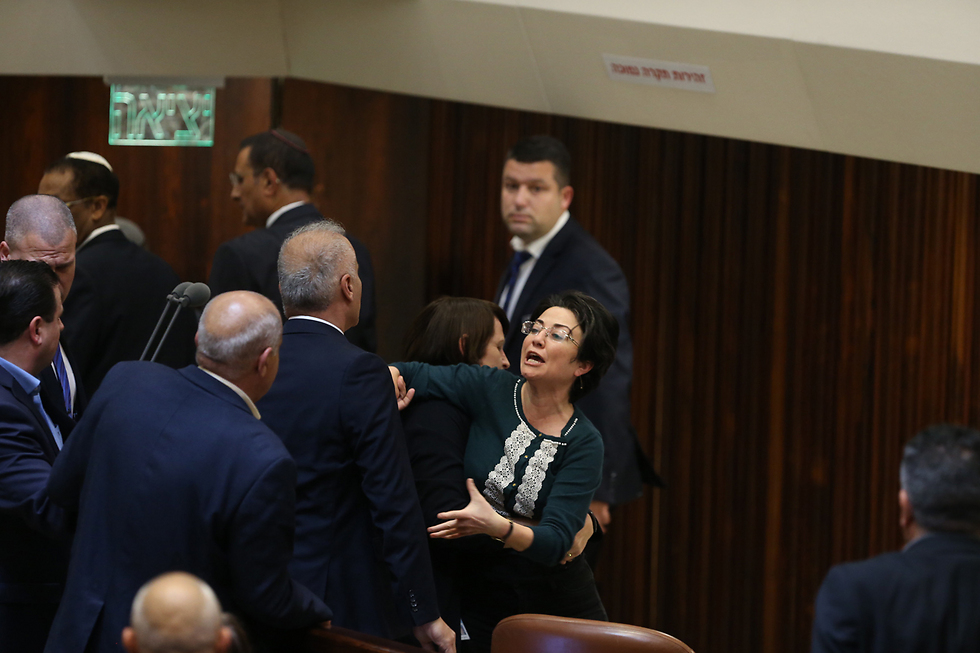
A convention against incitement
Op-ed: We have decided—not despite, but because of our differing political positions—to lead an initiative to write an agreed upon charter of articles that will define acceptable discourse in Israel. We call upon all Israelis to join us in building something that we can be proud of; a public discourse where all feel welcome.
Last month we participated in the AIPAC lobby conference in Washington, DC. We don’t hail from the same side of the political spectrum—one of us manages the Darkenu movement, which organizes the moderate majority and supports separation from the Palestinian Territories, and one of us is the head of the Efrat Local Council in Gush Etzion, of the YESHA Council.
We came to AIPAC to represent different opinions and different publics, but we found ourselves sharing a similar experience: we were both profoundly moved at the sight of 18,000 people gathered in one place to cheer on Israel. We have grown so used to the hostility and militancy of opposing camps in Israel that we were overwhelmed by how heartwarming it was to be immersed in such an atmosphere of partnership, pride, and love for this enterprise that we are both invested in: Israel.
We watched on with amazement as the American audience came together in an expression of their love for Israel, and we wondered if it would have been possible to convene 18,000 people in Israel who would stand together and pay such a tribute to the state.
In Washington, they chose to see the positive, unifying, and admirable side of Israel. But here on the ground, the debates surrounding internal divisions, separation, and political controversy have become cruel, insulting, and poisonous. The hostility between camps has become so great that we seem to have lost sight of the fact that political opponents are not our enemy; that despite some serious disagreements, we share a common future and a common concern for Israel, which belongs to all of us equally.
We both believe that differing positions should not be elided. The views we hold are different. That’s undeniable. But we believe that it is diversity of opinion that offers each side new perspectives, and challenges people to step outside of their comfort zones. A range of opinions is a positive thing, and we both wish to help cultivate an appreciation for such diversity within our citizenry. In order to do this, we must believe that the other’s intentions are sincere; believe that he or she is acting in line with what they believe to be the best interests of the state. We have stopped believing that. And that goes both ways.
In recent years, what we have grown accustomed to is the illusion of democracy. Everyone pretends to play by the rules of democracy—the elections, the judiciary, and law enforcement—but the time has come to admit that we have found ourselves in the midst of a crisis. We are losing our sense of trust in our public institutions, while at the same time there is a frenzy of rhetoric that seeks to delegitimize the “other.” Our systems are still strong and stable, but if this discourse—which seems designed to entrench and intensify this growing sense of mistrust—continues, it could lead to anarchy and a further fraying of the ties that bind us together. We must recognize the dangers inherent in such violent discourse and take responsibility to reshape the nature of debate, ensuring that verbal incitement isn’t allowed to become commonplace, limiting us as individuals and hindering our progress as a society.
To this end, we seek to establish a common set of principles and expectations for respectful discourse, and to decide together what should be permitted and what should be rejected within the Knesset, on social media, in the media, and at the Shabbat table. Not in terms of legislation, but in societal understanding.
In Israel, we have the right to speak without fear, but it is important to understand the necessity of honest, respectful, and relevant rhetoric. We have decided to take the initiative—not despite, but because of our differing political positions—to lead an initiative that will result in the writing of an agreed upon charter of articles that will define acceptable discourse within the state.
We are looking to develop a cooperative process that will enable all Israelis to participate in developing and defining articles and identifying boundaries for political discourse, something that is all the more important as we approach an election year. Through this process, we’re looking to remind the public of their power to influence the shape of our political discourse, cultivate a culture of listening to the other, and restore the trust that has been eroding away. As part of this process of developing the charter, we will travel from the periphery to the center, from ultra-Orthodox to Arab cities, from settlements to kibbutzim, and we will also utilize digital communications to allow for maximum engagement from Israelis who want to play a part in drafting the language for the convention.
Once the articles have been agreed upon, we will work to raise awareness of it across every segment of society—but first and foremost, we will look to all elected officials to sign onto it. They should be the first to commit to setting a personal example of respectful and legitimate discourse. We call upon all Israelis to join us in building something that we can be proud of; a public discourse where all feel welcome.















